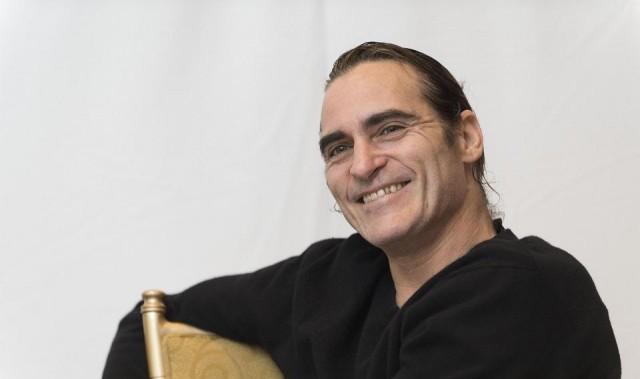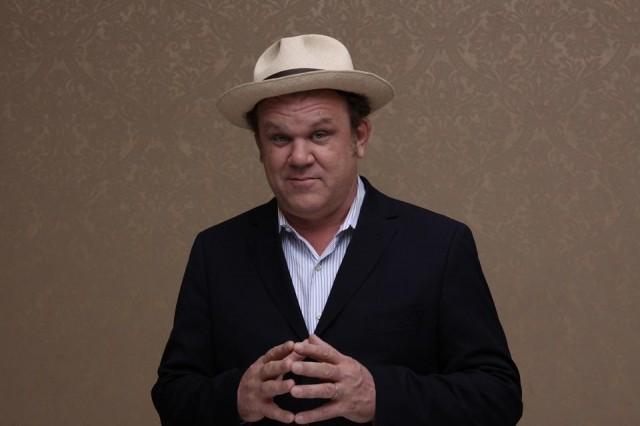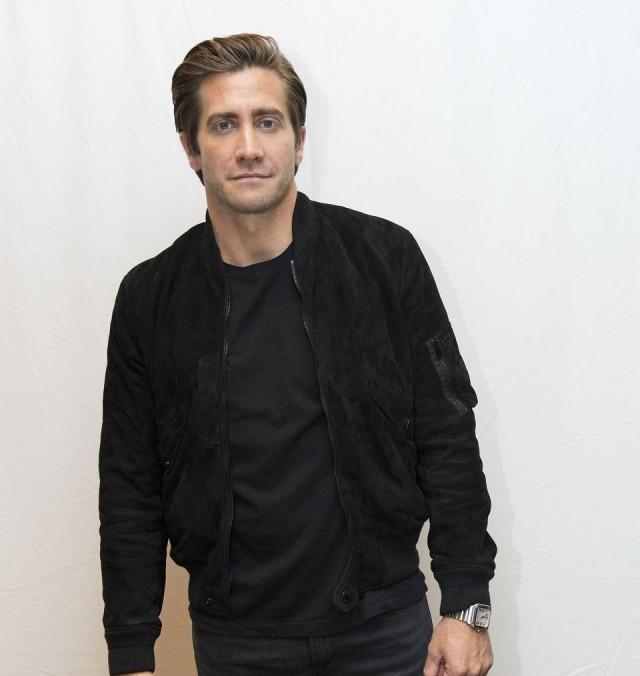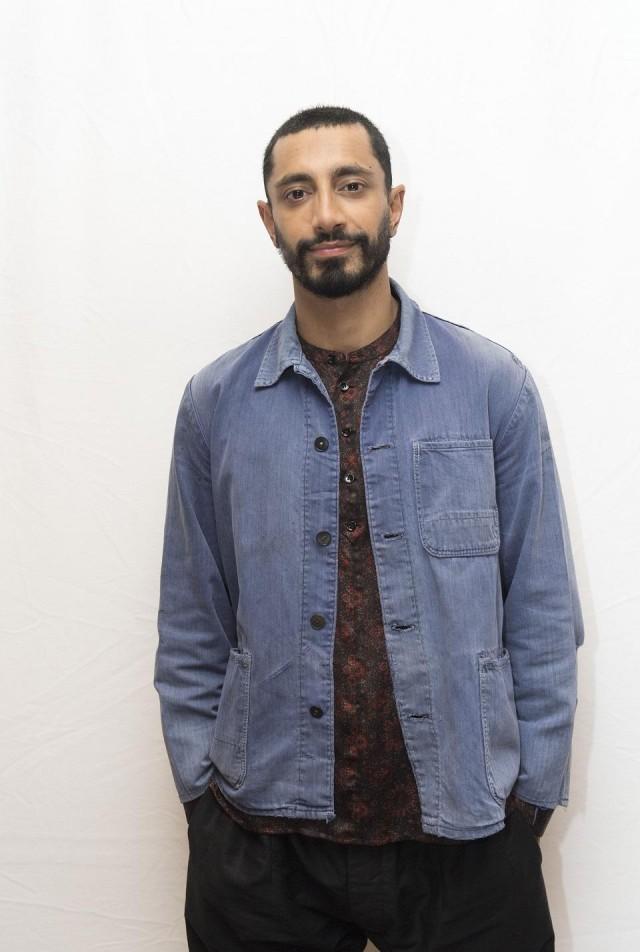Hollywood Insider: Joaquin Phoenix, Jake Gyllenhaal, Riz Ahmed, John C. Reilly talk ‘The Sisters Brothers’
LOS ANGELES — Call it luck that we got to talk to four talented actors—Joaquin Phoenix, John C. Reilly, Jake Gyllenhaal and Riz Ahmed—in Toronto for their recent western dark comedy, “The Sisters Brothers.”
Based on the novel of the same name by Patrick DeWitt, the film stars Phoenix and Reilly as notorious assassin brothers Eli and Charlie Sisters. Gyllenhaal plays John Morris, a detective assigned to bring chemist Hermann Kermit Warm (Ahmed), who has concocted a formula for finding gold, to the Sisters Brothers.
The film rights for the novel were sold to Reilly’s production company and adapted into the film of the same name directed by Jacques Audiard. The actors talk to us about their experiences in making the film among other things.
Below are excerpts of our conversations with the cast:
JOAQUIN PHOENIX

On working with John C. Reilly and their chemistry as brothers in the film: Obviously, it's really an integral part of the movie. These guys did everything together, so there's something that we both were really cognizant of when we arrived and the way it works out I always experience this on movies.
The environment suited the work and we were the only two Americans for a long stretch of time in a foreign country with a foreign crew. If anything, it mirrored the experience that the characters go through when they begin this journey. They go in this foreign land and it ended up just being forcing. I don't know what would have happened if we were shooting in Los Angeles. There really was no-one else around so just by virtue of the environment, we spent a lot of time together.
It was important and there's not only just a closeness between them. There is this shared history and really, certainly from my end, complicated forms of manipulation. So I thought that was really interesting to explore as well. So that's what we did.
On his mother's influence: I'm sure a lot of people say this but my mother is a very unique and strong woman. She's influenced me in every possible way. We're still very close obviously and she's extraordinary. She's a really special one.
On filming in Romania: It was amazing. I really liked Romania actually and I don't know if you know the director Cristian Mungiu...He's brilliant. He was there and took us around a little bit.
It was beautiful; John and I lived together. I have really fond memories of that time because literally we go home from work, see each other, and make pasta.
[T]hey built the town that was San Francisco and it was extraordinary. It's a massive set. I don't remember ever being on a set that big and detailed. The people were lovely. I really liked being there.
On losing or gaining weight for a role: It's harder, but you do what's necessary for the character. In some ways, yes, you've been through the process so you know what to expect, but really because of that you dread it even more.
I remember the first time that I lost a lot of weight. As difficult as it was, I didn't really know what I was doing. It was new. Now the feeling of hunger is familiar so you dread it. I actually put on like eight pounds before I started to lose it because I knew that I had to start this diet and so I figured just spend like a month eating whatever I couldn't and then I started the diet, which is so stupid.
It's awful. I don't think you realize how everything revolves around food socially and so it's a pretty solitary existence that you have to have because it's miserable for other people and for yourself and so I totally understand.
On the film that he is losing weight for: It is called—it's "Joker."
JOHN C. REILLY

On the genesis of the film: It started with director Jacques Audiar and me a couple of years ago when we met. We had kind of a diplomatic détente here in Toronto. The French mafia came over, the American mafia came over and yeah, my wife Alison Dickey and I, Jacques was here I think with "Rust and Bone," and we went to this restaurant.
It wasn't open during the day, but we got them to open it. So we sat in this empty restaurant together. It really was like a mafia summit or something. Despite Jacques’ initial suspicions of these strangers bearing gifts, it was the beginning of a great thing.
On getting into the more sensitive side of his character: That is one the more interesting things about the characters. Even though they look like these filthy brutes who are murderers for a living, which is what they are, they are actually pretty well-educated and they have these somewhat intellectual conversations all of the time with each other.
So they use that thing of judging a book by its cover to their advantage, to always have the jump on people because people assume that they are less intelligent than they are. Kind of like me and Joaquin. So we just spent time together, really.
Joaquin pointed out before [that] these guys have spent their entire lives together, and since the time they left home, it's been really only the two of them every night, every ride, every meal. We had a lot of catching up to do, so we just tried to spend as much time together as possible.
On his first producing project: I have to first of all give credit where credit is due. Although I am technically a producer on the film, my wife, Alison Dickey, it was her idea in the first place. She was working with Patrick DeWitt. She found the book. She suggested Jacques. So she was the initial momentum for the project.
There are a lot of producers on the film. We each have our strengths and I did my bit where I could. The book would have been made into a film without us because it is a very compelling piece of work and it is a great piece of Canadian literature.
We knew that it was a very filmic idea, the book, but we also were friends with Patrick, the author. So we know what can happen in this process of books becoming movies and oftentimes they get twisted into an unrecognizable shape...one of the reasons he trusted us with the book was when we said, "Pat, we’ll try our very hardest to make a great film out of this. We’ll find the very best people we can, and please trust us." That is the story of this movie. That is why we are here.
JAKE GYLLENHAAL

On choosing his path and the people he meets along the way: I think what’s really cool about this film is that there’s a lot of talk about masculinity and about the generation before these men and how they influenced who they are and why they are searching. Each one of us has a very particular relationship to our father as characters.
And...what I adore about [my character] John Morris and his story and why he moves towards Hermann Kermit Warm in the story, why he just completely switches and he switched and he switched and he switched, that search for identity is about for him, trying to do something good and trying to find meaning.
And growing up doing this, and there are amazing opportunities that come with this, but I think, and we all do things that I think we feel we should be doing and there are opportunities that you are presented that you can’t turn down. But I am probably at that place in my life right now, which is why maybe all these movies that I am in are about, sort of, I love this person and how they work and I like this person and how they work and I want to work with this person and that person.
On his sister Maggie and if he ever wished to have a brother: I do have a brother. I have a little brother, I have a half-brother, and he is a little guy, he is four, but he is a little brother.
And my relationship with Maggie, one thing, and I do this a lot with my sister, but I really feel like [her new movie] “The Kindergarten Teacher” is an extraordinary piece of work.
I really don’t say this lightly about the type of work that needs to be acknowledged these days and I know you have a job to do, but I think that what she does in that film is brave beyond brave and the line that it walks throughout that entire piece is such a dangerous, beautiful line, and it’s the kind of art that someone like Jacques makes and a line that he walks, something that I think is rare right now. And the feelings it elicits from that performance, I think she is incredible.
She has been so incredible and so outspoken in these times as a woman and she has always been like that, since I was a kid. I grew up in a pretty sort of matriarchal household and a house full of supremely intelligent and fierce women, and she has always been that. And particularly this year I think in a very kind of black and white world, she has walked a very gray line that she always has in representing something that I think is profoundly human.
And if I talk about it more it will make me cry, because my sister I think is just extraordinary. And she works on herself and she works on her work and she pushes herself, and she is always my big sister and always will be my big sister.
We have had our complications, but I am so profoundly proud of her and I look up to her to this day and I will do anything to make people know how extraordinary she is.
On working with Riz Ahmed on “Nightcrawler” and this film: Riz read with Jacques and Riz is so Riz, apparently he missed the meeting with Jacques because he overslept and Riz will never stop oversleeping, no matter how successful he gets. It’s just his inevitability.
He still gets the roles, but I guess he auditioned for Jacques for the role and then it was just this surprise to the two of us that we were working together again, a funny surprise.
But you know Riz and I both, I say this about Jacques, I have said this before, but in my family we always say family comes first, except if Jacques Audiard calls, and that is how I feel about Jacques and I think Riz does too. I think both of us were so excited to be in that group of people and we shared that similarity.
RIZ AHMED

On his chemist character: I really enjoyed playing this character. I got to learn a lot about what was going on at this time in America. It’s really an idealistic moment where lots of people are trying to start communes and it was almost like communism before communism and all these people coming over from Europe and starting all these idealistic utopian societies, or at least trying to.
It was interesting how it resonated with what’s happening in California now, where there’s a different kind of gold rush happening and these idealistic people in Silicon Valley going, "We can save the world and make a better tomorrow with our technology." So it felt very relevant to today but also an opportunity to learn about some stuff I didn’t really know a lot about.
On working with Jake again: Jake and I were joking that it felt like a sequel for us, because we’re a double act again and we’re on the road, but instead of a car, we’re on horseback.
I guess it’s interesting with the same people again several times. You develop a shorthand, some of that whole getting to know each other stuff you can just get past. That was cool creatively, just having a common ground to start off with.
But it was interesting that the dynamic was reversed almost from “Nightcrawler,” or at least it was a bit blurrier in terms of who was in charge or who was guiding them.
On how much he loved playing Hermann Kermit Warm: I have to say, I just loved this character. I really loved him. He’s just someone who’s trying to make the world a better place, and he’s such an optimist.
I can sometimes be a bit of a cynic, or at least a bit skeptical. That’s like the British perspective, it’s a bit like looking at everything a bit skeptically. So, I don’t know if I felt like I related to him that much going into it, but by the end I felt like, “Yeah, that can be a nice way of looking at the world.”
Instead of seeing everything that’s broken, looking at all of the opportunities there are to fix things and stuff. He’s just someone who really cares about trying to make a positive impact, and I guess that I tried to take that on. — BM, GMA News




